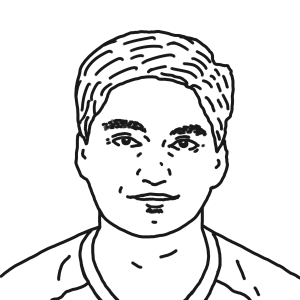Meet the preLights Ambassadors: Girish Kale
22 June 2023
In order to keep developing preLights and respond to the needs of the community, we recently launched the preLights Ambassador scheme. Four amazing preLighters have now been appointed as Ambassadors and we caught up with all of them to chat about the things that they’re excited to bring to this role during the coming year.
It’s time to introduce Girish Kale who works as a Postdoctoral Research Fellow at Heidelberg University, Germany. He has represented preLights at national and international meetings before and is therefore a very natural Ambassador for the platform.

Congratulations on joining our first preLights Ambassador team! Why did you decide to apply for the role of preLights Ambassador?
I have been telling people about preLights for a long time and recently a PI working at my institute suggested to integrate a Master’s course he’s organising here at Heidelberg University (on preprint review) with preLights. As part of this program, Master’s students read and critically assess preprints, but they don’t really have the chance to interact with the preprint authors nor publish their report afterwards. This is something that preLights can offer and I’m working with the PI and his lab members to make this a reality. While doing so, the idea struck me that we could leverage the pre-existing network of preLighters to offer these perks to Master’s students all over the world. I am happy that I found the structure and support for this idea through joining the preLights Ambassador program.
In your own career so far, how often have you felt part of a larger community? And how important has it been for your own academic and personal development?
I get that feeling all the time. The intensity of the feeling changes from time to time. The feeling is certainly stronger when I’m attending a conference. You always end up meeting people who are either from a university where you did your Master’s, or from a town/city where you did your PhD, or are currently working with your former colleagues, etc. But even otherwise, whenever there are seminars, you get a familiar vibe from the research experience of the speakers, irrespective of their topic or area of interest. I feel like such sense of community is important for several reasons. It could easily be a source of modesty and an antidote to arrogance. The sense of belonging is a constant reminder that ‘you are not alone’, especially important when you are feeling low.
What do you think should be the most important goal of community projects like preLights?
The importance of science communication cannot be understated, especially in this age of misinformation. Science exists in various forms: ideas, raw data, results, preprints, peer reviewed articles, and so on. Science communication is important at all these stages of research. Here, community projects like preLights play an important role. We are trying to make scientific literature accessible, at a stage when has not been peer-reviewed yet. It is a truly challenging task, and I am happy to see that many are involved in it.
What is your favourite thing about preLights?
I feel there are two main things that I enjoy: one is the challenge to explain the article and the underlying research in as simple language as possible; and two, the sense of having a community of peers just a message away.
Personally, I try to find and use simple analogies that allow the reader to visualize the biological processes described in the article. If possible, I also try to make the write-up a bit funny, and I like that challenge. The sense of community here at preLights is different from what one feels in an institute or at a conference. Here the community exists because of a shared passion for science communication. I believe that not-being-alone is the easiest way to convince yourself that you are on the right path.
During the next year, what aspect of preLights would you like to strengthen? And how would you like to achieve it?
The community of preLighters is already quite strong. Now with the Ambassador program, I hope to leverage this strength to also reach out to peers who are not part of the community yet, especially the Master’s students. preLighters already interact with each other for several reasons, especially at the editing step, before a preLight is published. My hope is that such an editing role will be further diversified and strengthened in the years to come. One way to develop these editing skills would be through the ‘preLights peer support’ initiative that I aim to set up.
We are always interacting with students from local Master’s programs, and we know who are the ones who are passionate about science and perhaps consider doing a PhD after finishing their Master’s. These students are already reading preprints, either out of interest or as part of their curriculum. Writing a preLight on such preprints could be an easy step for them, given that they have already invested quite a bit of time in understanding the preprint. Here the preLighters could assume the role of the editor for a specific preLight, which will then be recognised as a collaborative effort between the Master’s student and the preLighter.
What are you hoping to gain from the experience in terms of your own career development?
I think science communication is an essential soft skill, and as for most other soft skills, there is no formal training for this. So, we need to learn by doing it. I strongly believe that our science is only as good as our ability to communicate it. So, here I am practicing science communication as a preLighter.
Finally, what is something people should know about you (but may surprise some)?
I’m bit of a geek. I love playing boardgames, and enjoy designing and painting t-shirts (like the one pictured below).











